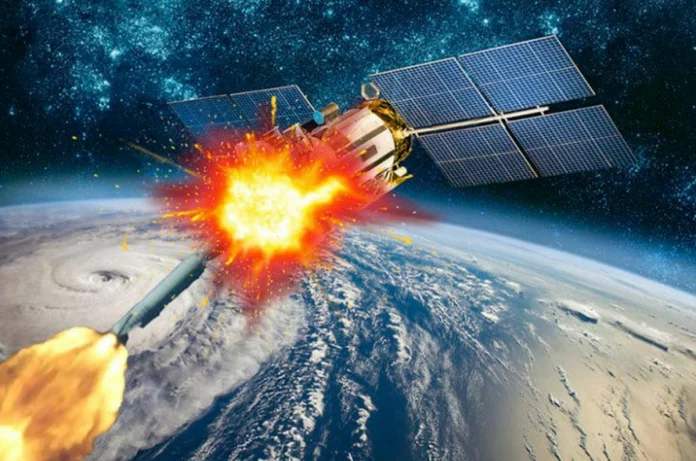After previously criticizing a similar test by Russia for jeopardizing the International Space Station with debris, the US will announce on Monday that it will not perform an anti-satellite (ASAT) missile test.
U.S. At the Vandenberg Space Force Base in California, Vice President Kamala Harris, who leads the National Space Council, will announce the United States’ self-imposed prohibition.
The prohibition, which is the first of its sort by a country, is part of the Biden administration’s strategy to promote responsible space usage, and Harris will call on other countries to follow suit.
According to a US report, Russia test-fired an anti-satellite missile on Nov. 15 that hit a defunct Soviet-era surveillance satellite in low-Earth orbit, resulting in at least 1,632 pieces of space debris. Database of orbital objects maintained by the Space Force.
U.S. Secretary of State Anthony Blinken slammed the test at the time as risky and irresponsible, claiming that the debris field presented a threat to active satellites in orbit and compelled astronauts aboard the International Space Station, a joint venture between NASA and Russia’s space agency Roscosmos.
As Russia’s incursion grinds on, the declaration coincides with greater US intelligence collaboration with Ukraine.
Western analysts have expressed worry that Russia could target and shoot down space-based intelligence satellites during the fight.
The debris released by these tests now threatens satellites and other space objects that are critical to all nations’ security, economic, and scientific interests, according to the White House, and puts people in orbit at risk.
In December, the US announced its support for a prohibition on anti-satellite weapon tests.
The only other countries that have created orbital debris from anti-satellite weapon tests in the past are the United States, China, and India, with China’s lone demonstration in 2007 creating the greatest swarm of debris.








